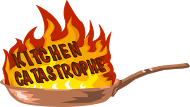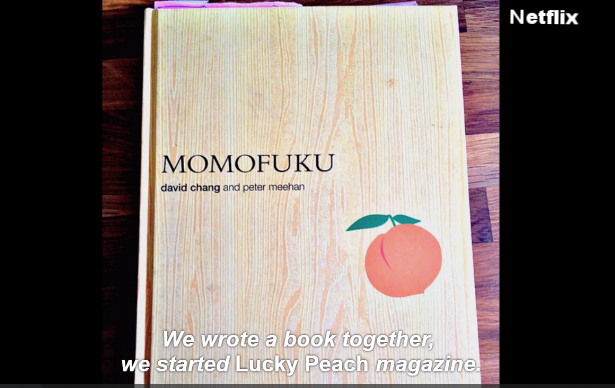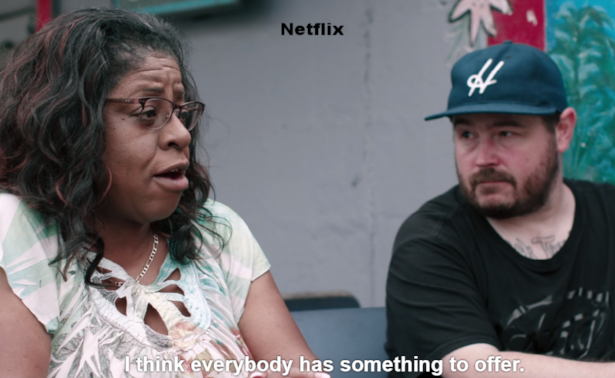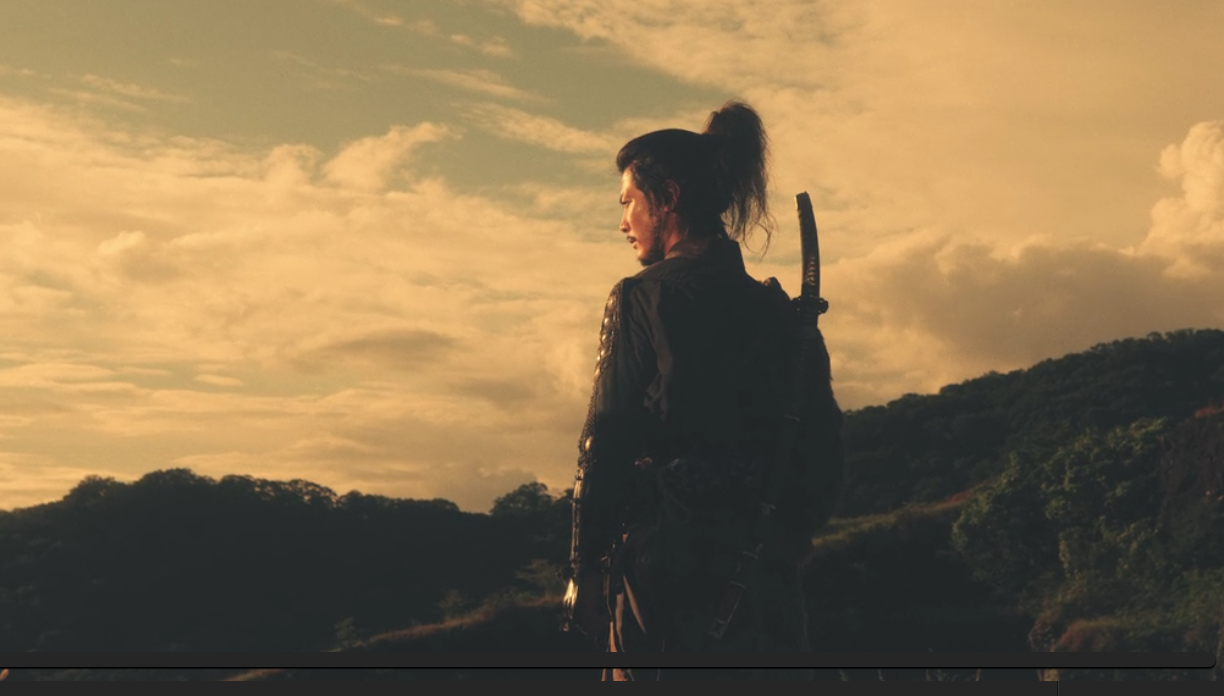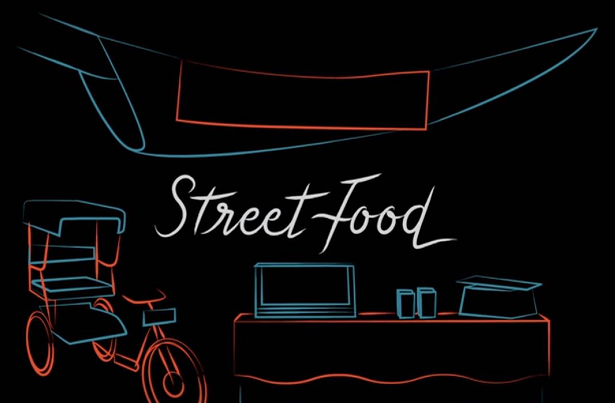Catastrophic Reviews: Ugly Delicious
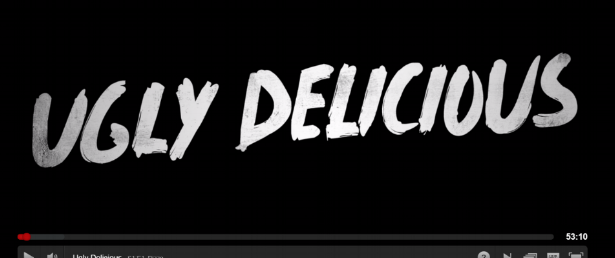
Why Hello There, and welcome to Catastrophic Reviews, the series of posts that tie Jon into watching several hours of programming in order to form a cogent opinion. Today we’re tackling another Netflix series, because our last one really seemed to resonate with people! Not in completely stellar ways, but hey, as PT Barnum probably once said, “Damn, I’m gonna be sore tomorrow.” Last time, someone accused the host of the show I thought was a mostly harmless meander through food cultures as being “Donald Trump’s stupid second cousin”, so let’s try and piss off the other side of the aisle this month, shall we?
Say “What” Again, Momofuku
“Ugly Delicious” is the product of David Chang, the famous chef of Momofuku Noodle Bar, and a man I have definitely talked about before on the site. And the structure of the show is…a little difficult to pin down. In essence, every episode focuses on a ‘dish’, for values of that word. There is a “pizza” episode, a “fried rice” episode, and so on. And it consists of David Chang, Peter Meehan, and a couple of friends they pick up along the way exploring that dish, and its cultural seat in the world. Who the heck is Peter Meehan? Well, he’s a former New York Times restaurant critic. Through that job, he met David Chang, and went on co-author Chang’s cookbook, which I own, as well as found a food-based magazine with Chang, several issues of which I also own.
Here's how lazy I am: Despite having the cookbook, and knowing where it is, I still just took a shot from the Netflix show, because that way I wouldn't have to walk.
Most of this backstory is explained in episode 3, and right off the bat, here’s my first recommendation: Start on episode 3 (and then go back) if you don’t have an understanding of the Michelin-star chef scene. Seriously, the first two episodes just throw you in, and expect you to just accept all the names dropping around you. As an example, I have to list an event that will sound like gibberish without context, but I promise I will explain it afterwards: This series covers Noma Mexico before it talks about Noma, and it talks to René Redzepi before either of them.
Alright, so, what does that mean: René Redzepi is the executive chef of Noma, a restaurant in Copenhagen that won “Best Restaurant in the World” 3 consecutive years, skipped a year and then won it again. The style is of a heavily foraged/locavore mentality, and an effort to take Norwegian dishes and ingredients and elevate them. So, talking to the chef first, that’s fine. However, Noma Mexico was a pop-up venture to replicate, temporarily, the ideas and methods of Noma in another city and country. It lasted for 2 months last year, and is now gone. For a sports analogy, imagine talking to Michael Jordan, then showing his time in Baseball, before talking about his time with the Chicago Bulls.
A period of his life so unremarkable, I continually think he played for the Washington Wizards. Which is true. Because they're the other BASKETBALL team he played for.
But episode 3 ("home cooking", so you see what I mean by "each episode is a dish...for values of that word") sits down, and talks to the chef, and even gives us the thesis of the name of the show. (Chang calls a dish of soup he makes for breakfast “ugly delicious”, and explains that he wants to be able to make something like that in a restaurant: it doesn’t look good, but he knows it’s going to taste great.) It’s honestly just a better starting point for newcomers: it explains who the main people you’re going to go through the series with are, their relationship to each other, and really lets you relate to David, who we watch prepping Thanksgiving with his mother for much of the episode. So, now that I’ve told you WHERE to start, maybe I should tell you what the heck you’re going to be watching, right? First, let me talk about myself, because fuck you, I’m the author, and we’ll do what I want. (Also, I swear it relates.)
By Your Powers Combined, I Am Captain Asshole!
I have a fairly long record of pulling shit off at the last minute. Procrastination, improvisation, pulling off dazzling feats of last-minute twists and turns to deliver a satisfactory result. I have gotten Bs in classes for which I missed 40% of the overall grade, and have generally turned nothing into something for most of my life. However, this is not always my preferred means of approach. For something like Shakespeare, I actually take what I’ve mentally dubbed a “prismatic” approach: I attempt to approach a Shakespearean play and role from as many angles as I can. I don’t just read the play, I get three different editions of the play, and study their grammatical differences. I don’t just watch a performance from it, I hunt down 5 recordings, and adaptations. I glance over scholarly discussion, and referenced themes and works. Each of these facets allows me to focus my attention and actions, aiming my efforts like a prism does light.
I call it the "prismatic approach" because "The Death Star Superlaser Approach" is just too fucking unwieldy, and honestly makes me sound more nefarious than necessary.
In many ways, this show takes a very similar approach to each of the “dishes” it covers in each episode. Sure, David, as the nominative host of the show, is in every episode. But there are segments where we’ll totally abandon what Dave’s doing, and go hang out with people we last saw fifteen minutes ago, or an EPISODE ago, and hear their thoughts, and see what facet of the ‘issue’ they’re approaching is.
Let’s take the Pizza episode, for example. The Pizza episode is, generally speaking, concerned with the question “What is a pizza, and who decides that answer?” It starts with a New York Pizzeria runner, an Italian American guy who was a marble cutter, and whose voice wouldn’t be out of place in a gangster film. And he speaks with a certainty like the stone he once worked: “This is perfectly fine” he says in reference to a slice he's eating “it’s just not pizza”. Then we jump to an interview with the President of the Committee of True Neapolitan Pizza, and he explains the rules of what makes true Neapolitan pizza. And then we’re in Copenhagen, and René is serving us a pizza that intentionally breaks those rules. Now, our Marble-Cutter is in Connecticut, to try a ‘clam pie’, and nobody’s with him. Then he and Peter are IN Naples, trying pizzas, while David is in Tokyo with Aziz Ansari trying Tuna Pizza with Mayo and Corn sauce. This is the energy and prism of the show: we’re given a quest, a mission, and the show unfolds, trying to capture all of it. It’s a wild mess of a show, trying to encapsulate every facet of the dishes it covers.
Even when those facets are controversial, or politically charged. The episode about Tacos, for example, doesn't shy away from discussing illegal immigration. One of the chefs they meet is an undocumented immigrant with a husband and daughter here in the US. Another is banned from the US for life because he entered illegally twice. (He notes that he did not even WANT to return the second time, but he had to visit his dying father.) The Fried Chicken episode talks with professors of African American studies, and black chefs in America and Japan, discussing the relationship between black people and fried chicken in America. And while it’s clear that many of the chefs are liberal leaning (David himself for one), the show rarely fails to also show other sides. An episode about Crawfish, discussing racial attacks against Vietnamese shrimpers in Texas and Lousiana by the KKK in the 80’s, (a real thing that happened, to my amazement) has one of those same Vietnamese shrimpers speak about his fears with Islamic refugees entering the country, and the hope that their struggles to become citizens are equal to his own family’s, and his fears regarding radicalized individuals. The Fried Chicken episode speaks with white restaurateurs whose businesses are heavily inspired by black businesses, and how do they address that? And then it goes to those black businesses and asks how they feel about it.
"With remarkable aplomb" is the answer, it turns out.
This compounds the messiness, sometimes drawing out the “ugly” of the title. David Chang is searching for some pretty big answers here. The show as a whole is, in many ways, an inspection of what food MEANS, and what it can accomplish. There’s a line early on, where a reporter mentions he had two white supremacist criminals arrested, and what he truly enjoyed about the process was finding social media posts of the men proudly enjoying Mexican food together. He thought it was amazing: two men, politically devoted to the charge of ethnic supremacy, celebrating the cuisine of their ‘enemies’. David is struggling with questions of identity, and cultural permission, and generational osmosis, as a Korean-American man and chef. He’s talking to people about food, because it’s his window to the world, and he’s trying to find answers. Does it always work? No. It can be ugly. But when the pieces seem to click together, it can taste pretty sweet, too.
And sometimes the questions themselves can be fascinating: in Houston, Texas, there is a growing food scene of "Viet-Cajun" food, particularly in how people their cook their crawfish. You would THINK such a fusion of cuisines would be among the Vietnamese of Louisiana, but no, because Louisiana takes their crawfish traditions too seriously to allow that kind of tampering. Why? Why does being Cajun overwrite being Vietnamese? It's a fascinating question. David spends the Barbecue episode asking why Korean barbecue isn't considered "real" barbecue, and what IS 'real barbecue'? Is Yakitori from Japan, where skewered, sauced meats are infused with flavors over the smoke of charcoal, not barbecue? And if not, where's the line? He lashes out multiple times at Italian American cuisine, and is called on it by his compatriots, because he doesn't see why Italian American cuisine gets to be so much more popular than Korean food, or Chinese food. And you have Italian American chefs, attacking the very style, also defending it. Because THEY can say "Yeah, most Italian food in America sucks", but David can't, to their minds. And then we talk to a Food Critic in China, who's like "Oh yeah, Chinese people think Western food is monotonous and bland" And by Western, they mean French, Italian, American, all of it. Painting all of us with the same generic brush we painted them.
I was going to make this a gif, but after 20 minutes of tinkering with a new program, I was reminded my aunt was visiting today, so I decided to just screen cap it and move on.
I watched all 8 episodes in 3 days, with my brother, because our schedule was rather tight this week. And we both heartily recommend it. Nate’s only complaint is that David is too willing to argue with people, and my only real concern is that the episodes are somewhat mis-arranged by my measure: yes, they should have started with the 3rd episode, but I also think that the second episode could be moved later. (The Second episode is the Taco one, and it’s, in my opinion, the most directly politically charged episode. So I feel it would work better as a later episode. Because as it is, the Pizza one is basically completely non-political, then it's a pretty political episode, and then we leave that topic alone for a while. ) We don’t do like, “ratings”, really, but we both agreed 4 stars out of five, so I guess now we kind of do?
Help Jon pay his Netflix bill by supporting the site on Patreon, a move that also shows you’re a supporter of American small businesses, so it’s great for everyone! Patrons get access to polls, videos, posts, and more for their aid in keeping the site running, because we believe in rewarding loyalty. If you don’t want to spend your hard earned money on Internet funnies, then just make sure to share our posts on social media, and invite your friends to like our Facebook page. More traffic keeps Jon believing he’s popular.
MONDAY: CHICKEN POT-PIE, MADE FOR A SILLY REASON.
